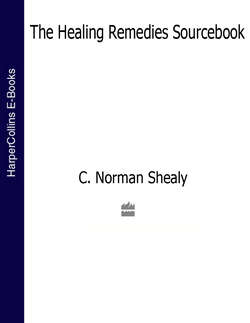Читать книгу The Healing Remedies Sourcebook: Over 1,000 Natural Remedies to Prevent and Cure Common Ailments - C. Shealy Norman - Страница 36
ОглавлениеINULA HELENIUM
WILD SUNFLOWER Elecampane, Suria-Mukhi
Traditional Ayurvedic and Chinese herbalists have long used the dried root of the wild sunflower, or elecampane, to treat bronchial infections, asthma, and whooping cough.
PROPERTIES
Wild sunflower is a sweet, bitter, pungent herb with warming, drying qualities. It acts as an expectorant, a tonic for the nervous system, a rejuvenative, and a galactagogue (induces milk secretion). Elecampane’s antibacterial and antifungal qualities support its use in the effective expulsion of intestinal parasites.
Part of Plant Used The roots.
Conditions Treated Colds, bronchial infections, coughs, lung congestion, and infection. It aids digestive disorders, such as amebic dysentery, pinworms, hookworms, and giardiasis. It stimulates the brain, kidneys, stomach, and uterus, and eases sciatica. Wild sunflower has been used to treat menstrual cramps.
Form Taken Inhalations, massage oils, and lotions.
Used with Other Herbs? Cedarwood, cinnamon, lavender, frankincense, musk, tuberose.
HOW TO USE
Elecampane increases pitta, and reduces kapha and vátha with its warming, drying qualities. A decoction treats both respiratory and digestive upsets.
CAUTION
Traditionally used to stimulate the uterus so should be avoided by pregnant women. Some people develop a rash when in contact with the herb or its oil. If so, discontinue use. Do not give wild sunflower to children under two years of age.
Use of the herb may cause photosensitivity in some people.
